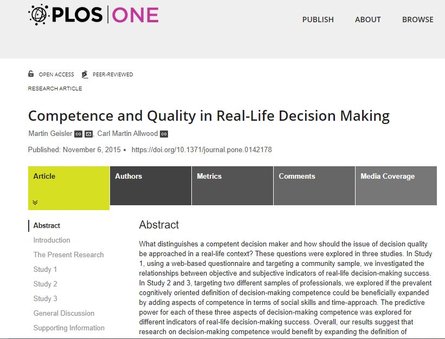
What distinguishes a competent decision maker and how should the issue of decision quality be approached in a real-life context? These questions were explored in three studies. In Study 1, using a web-based questionnaire and targeting a community sample, we investigated the relationships between objective and subjective indicators of real-life decision-making success. In Study 2 and 3, targeting two different samples of professionals, we explored if the prevalent cognitively oriented definition of decision-making competence could be beneficially expanded by adding aspects of competence in terms of social skills and time-approach. The predictive power for each of these three aspects of decision-making competence was explored for different indicators of real-life decision-making success. Overall, our results suggest that research on decision-making competence would benefit by expanding the definition of competence, by including decision-related abilities in terms of social skills and time-approach. Finally, the results also indicate that individual differences in real-life decision-making success profitably can be approached and measured by different criteria.